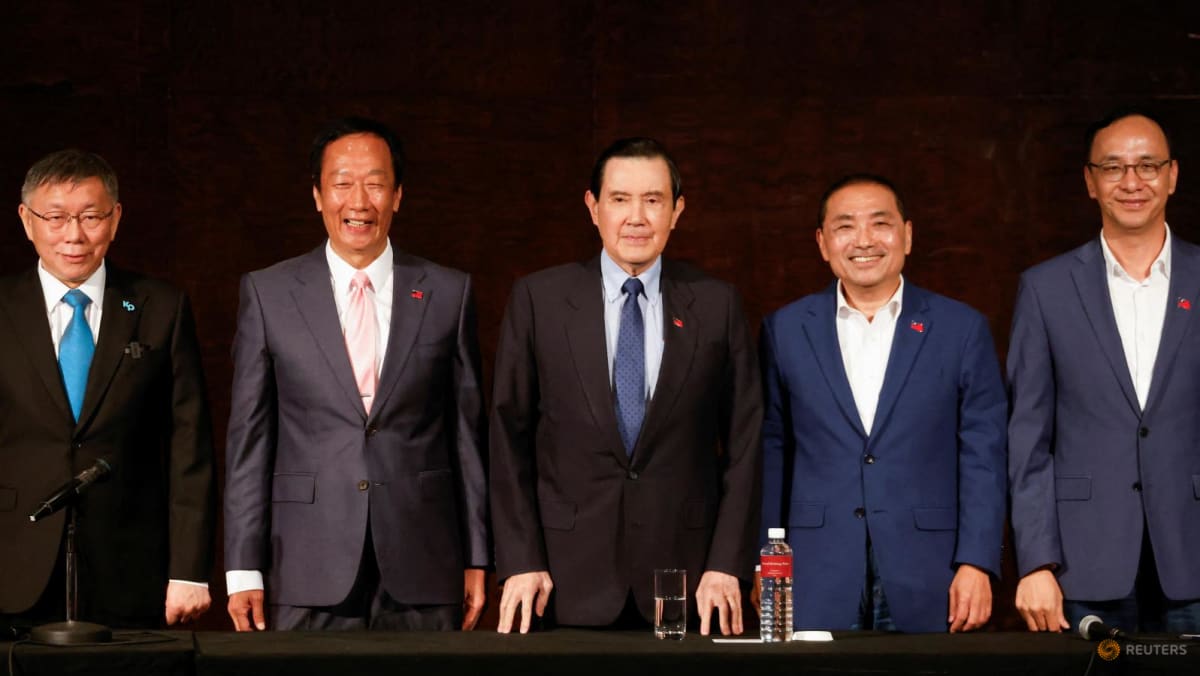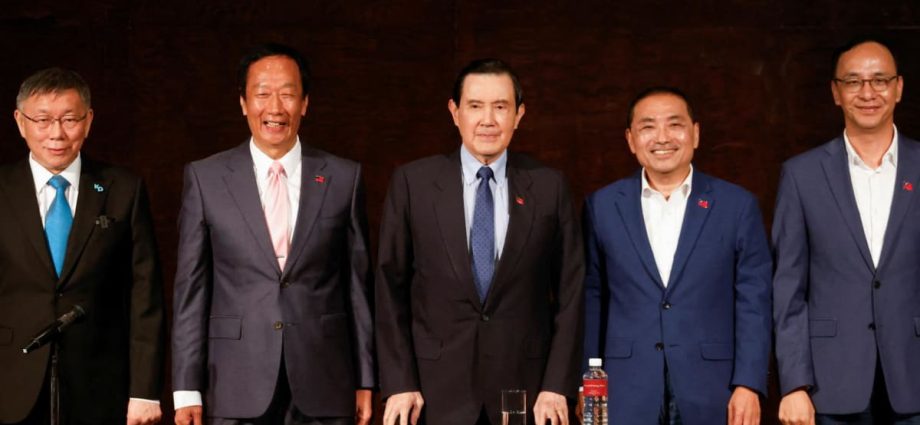
The five then gathered in a conference room where they had invited reporters and proceeded to argue and reveal previously confidential conversations in public in footage shown live on Taiwanese television stations.
In one of the most dramatic moments, Hou read out a private text message from Ko in which Ko said Gou needed to “find a reason” to drop out of the presidential race.
Ko sat stony-faced as Hou continued to read out other messages, and when finally given the chance to respond said that reading out private messages was not something presidential candidates do.
After more than an hour of talks and further arguments, the KMT team walked out.
But the party subsequently said talks had not broken down.
KMT spokesperson Yang Chih-yu told reporters that despite senior party leaders being “greatly humiliated in public” during the meeting, the KMT will continue to work hard to make the joint ticket happen.
“The KMT will not give up until the last moment,” she said.
Following that press conference, the TPP announced that Ko would register his candidacy to be president with the election commission on Friday morning, along with a running mate the party did not identify.
Gou, who stepped down as chairman of iPhone maker Foxconn in 2019, did not answer reporter questions as he left the room and it remains unclear if he will register for president on Friday.
The DPP, meanwhile, has been powering ahead in its campaign having registered its presidential ticket on Tuesday – current Vice President Lai Ching-te who is leading the polls, and his running mate Hsiao Bi-khim, previously Taiwan’s high-profile de facto ambassador to the United States.
Hsiao, speaking to international media earlier on Thursday, discussed the sanctions China has placed on her – Beijing believes both she and Lai are dangerous separatists – and the importance of dialogue.
“It’s also important that the international community, who also agrees with our position in continuing peace and stability in the Taiwan Strait, make clear to our counterparts across the Taiwan Strait that dialogue is the only way to resolve differences. War is not an option,” she said.

